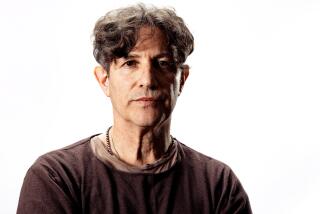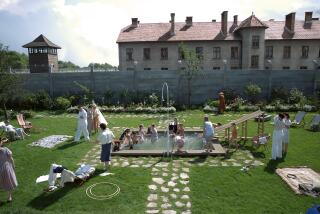NONFICTION - Dec. 26, 1993
- Share via
JEWELS AND ASHES by Arnold Zable (Harcourt Brace: $19.95; 210 pp.). Arnold Zable, the son of Polish Jews who narrowly avoided the Holocaust by emigrating to Australia in the mid-1930s, had an overpowering need to return to the scene of the greatest crime in history. What he found in Bialystok, where the Nazis killed most of his living relatives, was “jewels and ashes”--a history and a home, but a horrific history and an annihilated home. One jewel was a survivor and family friend, Zalman, who says: “About two things I know all there is to know. In these things I am a scholar, an expert, a professor. In all other things I may be an ignoramus, but on two subjects I can lecture for days on end and never come to the end of it: mud and hunger.” One ash: a garden where the Nazis executed more than a hundred residents, including two of Zable’s grandparents. There are many other jewels and ashes in this book, and it is indeed as poetic as the title indicates, full not of anger and pity but witnessing and self-discovery. Zable’s parents, in their 80s when “Jewels and Ashes” was written, cannot bear to remember what they left behind, but son Arnold cannot bear not to, searching “within a tangle of aborted memories” for “a mythical home which seems to elude us at it recedes into false turns and dead ends.” Zable calls the wandering Jewish people “masters of the ephemeral,” and he shows the truth of that statement in his own case: He makes both ordinary and awful moments come alive, often destined to sear the reader’s memory.
More to Read
Sign up for our Book Club newsletter
Get the latest news, events and more from the Los Angeles Times Book Club, and help us get L.A. reading and talking.
You may occasionally receive promotional content from the Los Angeles Times.







